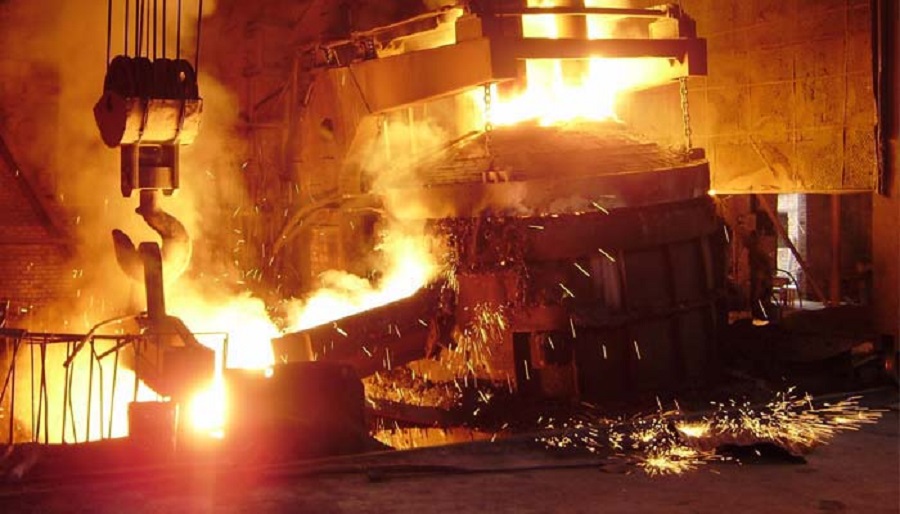Choosing the right iron casting manufacturer is a crucial decision that can significantly impact the success and quality of your project. Whether you’re embarking on a complex industrial endeavor, a custom artistic creation, or anything in between, selecting the right manufacturer is critical. This decision involves more than just assessing basic capabilities; it requires a deep understanding of your project’s unique requirements, an in-depth exploration of potential manufacturers, and a keen eye for detail in evaluating their technological expertise, quality control measures, and pricing structures. With this guide, you’ll gain insights into handling this process to ensure you choose a manufacturer that aligns perfectly with your project’s needs, while fostering a relationship that promotes success, innovation, and efficiency.
Understanding Your Project Requirements
Before going on the journey to find a suitable iron casting manufacturer, it’s essential to have a crystal-clear understanding of your project’s specifications. This understanding serves as the foundation for selecting a manufacturer that can meet your needs precisely.
-
Project Specifications: Detail what you need from your iron casting project. Consider dimensions, weight, design complexity, and the type of iron needed (like gray iron, ductile iron, etc.). Different manufacturers might specialize in certain types of castings or sizes, so your project’s specifics can narrow down the search.
-
Quantities: Estimate your required production volume. If your project is a large, ongoing production run, you’ll need a manufacturer with the capacity for high-volume orders. Conversely, for small batches or prototypes, look for manufacturers who handle smaller, more customized orders efficiently.
-
Quality Standards: Specify the quality benchmarks crucial for your project. These might include industry standards, durability requirements, material compositions, and finishing details. Ensure the manufacturer has a track record of meeting such standards and possesses the necessary certifications.
Researching Potential Manufacturers
The next step is to conduct thorough research to identify experienced and reputable iron casting manufacturers. This research is fundamental in creating a shortlist of potential partners.
-
Industry Directories and Associations: Leverage industry-specific directories and associations for a list of potential manufacturers. These resources can provide insights into each manufacturer’s experience, specialty areas, and reputation in the industry.
-
Referrals: Seek recommendations from peers, business associates, or online forums. Referrals provide honest feedback and can highlight a manufacturer’s strengths and weaknesses based on real experiences.
Assessing Manufacturing Capabilities
Once you have a list of potential manufacturers, it’s time to delve deeper into their capabilities.
-
Production Capacity: Consider the manufacturer’s ability to fulfill your order size within your desired timeframe. Assess their manpower, machinery, and overall operational capacity.
-
Technological Expertise: Investigate the technology and techniques the manufacturer uses. Modern and efficient casting methods, like computer-aided design (CAD) and automated casting processes, can ensure precision and reduce errors.
-
Quality Control Measures: Inquire about their quality control processes. This includes inspection routines, testing methods (like x-ray or ultrasonic testing), and adherence to quality standards like ISO 9001. Consistent quality control is a must for reliable iron castings.
Evaluating Pricing and Cost Transparency
A transparent and fair pricing structure is crucial in selecting an iron casting manufacturer. It’s important not only to consider the cost but also to understand how the pricing is structured.
-
Pricing Structures: Request comprehensive quotations and dissect their pricing structure. Consider material costs, labor, production time, and additional services like finishing or shipping.
-
Negotiating Terms: Engage in discussions to negotiate terms that are mutually beneficial. This can include payment terms, bulk order discounts, or long-term contract benefits.
-
Cost Transparency: Ensure the manufacturer provides clear and upfront pricing. Clarify any potential additional costs, like mold-making charges, to avoid surprises down the line.
Establishing Communication and Partnership
The final piece of the puzzle is establishing a strong line of communication and partnership with the manufacturer.
-
Open Communication: Maintain regular and transparent communication. This ensures that both parties are aligned on project progress, changes, or challenges.
-
Building Trust: Cultivate a partnership based on trust and mutual respect. A collaborative approach can lead to innovative solutions and a more successful project outcome.
The Final Forge: Concluding Your Manufacturer Selection Journey
Choosing the right iron casting manufacturer for your project involves a multi-faceted approach. It begins with a deep understanding of your project requirements and continues through thorough research, careful assessment of capabilities, prudent evaluation of pricing and cost transparency, and fostering a robust partnership. By meticulously navigating these steps, you can ensure that your iron casting needs are met with precision, efficiency, and to the highest of standards. Remember, the right partnership can be the difference between a project’s success and failure. Take your time, be thorough, and choose a partner who aligns with your project’s vision and values.

